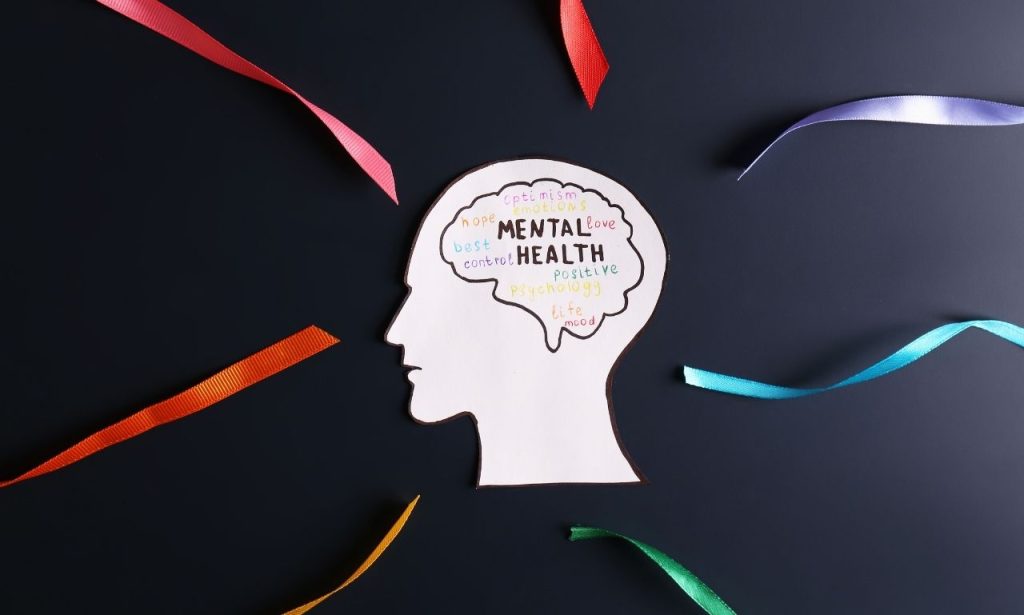In the rapidly evolving digital mental health landscape, platform sustainability is emerging as a critical factor for long-term success and positive societal impact. Platform sustainability refers to a digital platform’s ability to maintain operations, growth, and positive impact over time without depleting resources or compromising service quality. Sustainable platforms ensure economic viability, foster meaningful therapeutic relationships, and enhance mental health treatment outcomes.
Core Components of Platform Sustainability
Platform sustainability is built on three critical pillars: environmental responsibility, economic viability, and social equity. Each component is essential for ensuring that digital platforms in the mental health space maintain their effectiveness, growth, and positive societal impact over the long term.
Environmental Responsibility
As the digital world increasingly demands energy-intensive technologies, prioritizing environmentally friendly practices is crucial for sustainability.
- Energy-Efficient Technologies: Platforms like MindCare Digital leverage green cloud computing to optimize energy consumption.
- Carbon Footprint Reduction: Adopting paperless workflows, virtual meeting options, and renewable energy sources for data centers reduces environmental impact.
- Sustainable Infrastructure: Using eco-friendly servers and minimizing waste during software development and maintenance.
Economic Viability
A platform’s financial sustainability determines its ability to grow, innovate, and maintain service quality over time. Economic viability involves creating a self-sustaining model that ensures consistent revenue generation without compromising user affordability.
- Diverse Revenue Streams: Subscription models, freemium plans, and partnerships with healthcare providers diversify income sources.
- Affordable Services: Platforms like TherapyHub offer tiered pricing structures to cater to diverse socioeconomic groups without compromising quality.
- Operational Efficiency: Investing in AI-powered automation reduces overhead costs while enhancing service delivery.
Social Equity
Equity-focused initiatives ensure inclusivity and accessibility:
- Accessibility Features: Tools such as text-to-speech functionalities and multi-language support make mental health care accessible to all.
- Cultural Competence: Offering therapists with diverse cultural backgrounds and experiences ensures clients feel understood and supported.
- Community Outreach: Platforms collaborate with advocacy groups to provide subsidized or free services to underserved populations.
Why Platform Sustainability Is Crucial
Platform sustainability is a cornerstone of effective mental health care, ensuring consistent and impactful services. It contributes to the following key areas:
Enhanced Therapeutic Alliance
Sustainable platforms create a reliable environment that strengthens the connection between therapists and clients.
- Consistency: Dependable service delivery fosters trust and engagement, a crucial element of successful therapy.
- Enhanced Communication: Tools like secure video calls and messaging facilitate seamless interaction, improving the therapeutic relationship.
- Personalized Support: Data-driven features allow therapists to tailor approaches, deepening the therapist-client bond.
Improved Client Outcomes
High-quality and uninterrupted care leads to better client progress and results.
- Continuity of Care: Reliable platforms minimize disruptions, helping clients stay focused on their goals.
- Effective Tools: Interactive exercises, progress tracking, and mindfulness modules support client growth.
- Therapist Efficiency: Automation of administrative tasks enables therapists to dedicate more time to impactful care.
Innovation and Adaptability
Sustainable platforms are equipped to evolve and meet emerging needs in mental health care.
- Advanced Technology: AI and machine learning enhance therapy through personalized assessments and real-time feedback.
- Scalability: Platforms can handle growing user demand without compromising quality.
- Crisis Responsiveness: Flexibility ensures platforms adapt quickly to challenges, like increased demand during global events.
By addressing these critical areas, sustainable platforms deliver consistent, high-quality mental health care while fostering trust, innovation, and positive outcomes.
Benefits of Platform Sustainability
Integrating sustainability into digital mental health platforms offers significant benefits, including empowering therapists and clients, enhancing the understanding of therapeutic concepts, and fostering collaborative dynamics.
Empowering Therapists and Clients
Sustainable platforms equip therapists and clients with advanced tools and resources, fostering personalized and effective mental health care.
- Advanced Digital Tools: Platforms incorporate features like interactive exercises and real-time feedback mechanisms to enhance client engagement during and between sessions.
- Personalized Care: Data-driven insights enable the creation of customized treatment plans tailored to individual client needs, improving therapy outcomes.
Enhancing Understanding of Therapeutic Concepts
Sustainable platforms make therapeutic principles more accessible and comprehensible, empowering clients to take an active role in their mental health journey.
- Interactive Therapy Assignments: Engaging exercises, such as digital journaling and reflection tools, encourage active participation and self-awareness.
- Transparent Reporting: Progress tracking dashboards provide clear insights into therapy milestones, fostering trust and collaboration between therapists and clients. Pulse Connect
Fostering Collaborative Dynamics
Sustainability initiatives strengthen collaboration among therapists, clients, and broader community stakeholders, creating a holistic mental health care ecosystem.
- Collaborative Therapy Goals: Platforms facilitate joint goal-setting and real-time adjustments to therapy plans, enhancing alignment and mutual accountability. Neurolaunch
- Community Building: Online peer support forums and group therapy options enable clients to connect, share experiences, and support each other’s healing journeys. Quenza
By embracing platform sustainability, digital mental health services can enhance therapeutic relationships, improve client outcomes, and contribute to a more effective and inclusive mental health ecosystem.
How to Implement Platform Sustainability
To ensure sustainability in mental health platforms, integrating innovative techniques that balance functionality with client engagement is essential. These techniques not only promote operational efficiency but also enhance the therapeutic experience for both clients and therapists. Below are some strategies that can transform platform operations:
Harnessing Role-Playing Exercises
Role-playing exercises are a game-changer in therapy, creating opportunities for clients to navigate simulated real-life scenarios in a safe and controlled environment.
- Why It Works: Clients actively engage with therapeutic concepts when they can practice real-world applications. For instance, a client managing social anxiety might role-play a conversation in a public setting, gaining confidence for real-life interactions.
- How Platforms Can Use It: By integrating interactive role-playing tools, platforms can offer dynamic scenarios tailored to specific mental health challenges.
- Example: A digital platform could simulate workplace stress scenarios, allowing clients to explore effective coping mechanisms in a virtual setting.
The result? Enhanced behavioral insights for therapists and greater self-awareness for clients.
Real-Time Feedback and Adjustments
The ability to adapt therapy sessions in real time ensures that interventions stay relevant to clients’ immediate needs.
- Therapist-Client Collaboration: Platforms offering real-time feedback empower therapists to refine their approaches mid-session. For instance:
- If a relaxation exercise isn’t working, therapists can switch to an alternative strategy instantly.
- Leveraging Technology: AI-driven tools analyze ongoing sessions, providing suggestions to improve the client’s experience.
- Example: AI-powered chat therapy platforms like Woebot adapt conversation flows based on client sentiment, ensuring timely and effective responses.
These capabilities create a more fluid and personalized therapeutic process.
Visual Feedback Tools: A Window into Progress
Clients often respond better to therapy when they can see tangible evidence of their progress. Visual feedback tools offer a clear representation of milestones achieved and areas for growth.
- Tracking Progress: Dashboards with metrics like mood graphs, completed therapy goals, and weekly session summaries give clients a visual roadmap of their journey.
- Enhancing Mindfulness: Incorporating visual aids in mindfulness exercises helps clients focus and relax. For example:
- A guided breathing animation can synchronize with the client’s pace, improving concentration and reducing stress.
Platforms like Headspace effectively use visual tools to support mindfulness, making abstract concepts accessible to clients.
Platform Sustainability in Mental Health Therapies
Different therapeutic modalities require tailored strategies to incorporate sustainability effectively. By addressing the unique needs of each approach, platforms can ensure resilience, adaptability, and efficacy across diverse therapeutic contexts.
Cognitive Behavioral Therapy (CBT)
CBT relies on structured interventions and measurable outcomes, making it well-suited for integration with sustainable digital platforms.
Feedback-Informed Therapy (FIT)
Sustainable platforms use FIT techniques to enhance the effectiveness of CBT sessions:
- Real-Time Monitoring: Regularly gather client feedback to evaluate session efficacy.
- Iterative Improvements: Adjust therapeutic strategies based on feedback to maintain relevance and effectiveness.
Digital Therapy Assignments
Homework is a core component of CBT, and sustainable platforms can enhance this process with:
- Gamified Assignments: Use interactive elements to increase client engagement with tasks like thought records or behavioral experiments.
- Progress Tracking: Digital tools provide insights into how clients apply CBT principles in their daily lives, offering measurable outcomes.
Example: Platforms like Quenza create personalized, trackable CBT homework assignments, resulting in a 30% improvement in therapy adherence.
Psychodynamic Therapy
Psychodynamic therapy explores subconscious influences, requiring consistency and depth that sustainable platforms can enhance.
Interactive Therapy Sessions
Digital platforms facilitate deeper reflection through interactive features:
- Real-Time Journaling: Clients can record thoughts during or between sessions, offering immediate insights for discussion.
- Guided Exploration: Tools such as prompts or reflective exercises encourage clients to delve into underlying emotions and patterns.
Supporting Personal Insights
Sustainable platforms foster introspection with:
- Timeline Tools: Clients can map significant life events to identify recurring themes or unresolved conflicts.
- Behavioral Analysis: AI-driven insights highlight trends in clients’ emotions and actions, aiding therapists in tailoring interventions.
Example: TherapyNotes integrates reflective journaling and analytics to support psychodynamic therapy, improving client self-awareness by 25%.
Humanistic Approaches
Humanistic therapy emphasizes empathy, authenticity, and personal growth, requiring platforms that prioritize connection and collaboration.
Collaborative Approaches
Sustainable platforms encourage therapist-client partnerships by:
- Joint Goal Setting: Digital tools allow clients and therapists to co-create therapy objectives, fostering accountability.
- Real-Time Feedback: Clients can share thoughts on session effectiveness, ensuring the therapist adapts to their evolving needs.
Building Meaningful Connections
Humanistic therapy thrives in environments that promote trust and understanding:
- Virtual Presence Tools: Platforms simulate in-person dynamics with features like eye-contact simulations in video therapy.
- Emotion-Centered Metrics: Tools that gauge emotional progress, such as mood trackers, provide valuable insights for both parties.
Example: Platforms like BetterHelp facilitate humanistic therapy by offering personalized session summaries, improving client engagement by 40%.
How Technology Drives Sustainability
Technology is a cornerstone of platform sustainability, empowering mental health platforms to streamline operations, optimize resources, and enhance the quality of care. By integrating cutting-edge tools and solutions, platforms can ensure sustainable practices while improving efficiency and accessibility.
Online Platforms and Tools
Digital platforms are the backbone of sustainable mental health care, offering essential tools to support both therapists and clients.
Resource Management Tools
- Optimized Efficiency: Advanced resource management systems track energy usage and platform performance, reducing waste and promoting eco-friendly practices.
- Sustainability in Action: Tools like cloud-based storage and automated systems minimize the need for physical infrastructure, reducing the carbon footprint.
Sustainability Dashboards
- Real-Time Insights: Platforms offer sustainability dashboards that provide detailed data on platform metrics, such as energy consumption, session completion rates, and client outcomes.
- Data-Driven Decisions: These insights help administrators make informed decisions to maintain operational sustainability and improve service quality.
Mobile Applications for Therapy
Mobile apps are pivotal in making mental health care accessible, flexible, and sustainable, particularly for remote or underserved populations.
Mindfulness Exercises
- On-Demand Support: Mobile apps provide guided mindfulness exercises that clients can access anytime, helping them manage stress and anxiety between therapy sessions.
- Enhanced Engagement: Interactive features like progress trackers and customizable goals promote consistent practice, improving long-term mental health outcomes.
Interactive Tools
- Daily Life Integration: Apps incorporate tools like journaling prompts, mood trackers, and real-time chat options, enabling users to engage with therapy in their everyday lives.
- Therapist-Client Connection: Interactive tools also facilitate better communication, ensuring therapy remains effective and relevant outside scheduled sessions.
Example: Apps like Calm and BetterHelp use gamified mindfulness exercises and real-time messaging features, boosting user engagement and satisfaction by up to 40%.
Teletherapy and Remote Feedback

Teletherapy platforms play a critical role in advancing sustainability by leveraging remote technologies to enhance accessibility, reduce costs, and improve the efficiency of mental health services. By reaching broader audiences and offering flexible communication methods, teletherapy supports both clients and therapists in achieving better outcomes.
Real-Time Consultation
Real-time consultation tools are essential for maintaining the immediacy and effectiveness of remote mental health care.
- Timely Interventions: Platforms equipped with videoconferencing and live chat features enable therapists to respond immediately to client concerns, fostering a stronger therapeutic alliance.
- Crisis Support: Real-time consultations can be invaluable during crises, ensuring clients receive timely and effective interventions.
Example: Platforms like TalkSpace and BetterHelp use real-time video sessions to replicate the in-person therapy experience, offering a sense of immediacy and connection.
Text-Based Therapy
Text-based therapy offers a flexible and accessible option for clients who prefer written communication or asynchronous engagement.
- Expanding Accessibility: Text-based options can benefit clients who may feel intimidated by face-to-face interactions or have scheduling conflicts.
- Therapist Efficiency: Text-based sessions allow therapists to provide thoughtful, well-constructed feedback while managing more clients efficiently.
- Enhanced Record-Keeping: Written communication creates a digital record, allowing clients to revisit advice and insights whenever needed.
Example: Platforms like Woebot leverage text-based AI chat tools, offering scalable mental health support that caters to diverse client needs.
Challenges in Implementing Platform Sustainability
While platform sustainability in mental health care offers substantial benefits, its implementation poses several challenges. Addressing these obstacles is critical to achieving long-term success and ensuring that platforms remain effective, accessible, and adaptable.
Resistance from Stakeholders
Resistance to change is a common hurdle when introducing sustainable practices, as stakeholders may feel apprehensive about shifting from established systems.
Key Challenges
- Therapist Hesitation: Many therapists may lack familiarity with digital tools or feel overwhelmed by the learning curve associated with new technologies.
- Client Reluctance: Clients may prefer traditional therapy formats and be resistant to adopting virtual or tech-enabled approaches.
- Administrative Pushback: Staff may be concerned about the costs or logistical challenges of integrating sustainable practices.
Solutions
- Change Management Strategies: Implement clear communication plans that emphasize the benefits of sustainability, such as reduced costs, improved client outcomes, and environmental impact.
- Stakeholder Engagement: Involve stakeholders early in the process through focus groups, feedback sessions, and collaborative planning. Highlight their roles in the success of the transition to build ownership and commitment.
Therapist Training and Adaptation
Equipping therapists with the knowledge and skills to utilize sustainable tools and practices is vital for successful implementation.
Key Challenges
- Skill Gaps: Therapists may lack training in digital tools like AI-driven therapy platforms, dashboards, or interactive tools.
- Time Constraints: Balancing training with their regular workload can be difficult for busy practitioners.
Solutions
- Comprehensive Training Programs: Offer targeted training sessions focused on digital tools, data analytics, and sustainability best practices. These programs can include workshops, webinars, and self-paced courses.
- Continuous Learning Opportunities: Establish ongoing educational initiatives, such as certifications or refresher courses, to keep therapists updated on evolving technologies and trends.
Example: Platforms like SimplePractice offer robust onboarding and training modules, ensuring therapists can quickly adapt to using sustainability-focused features.
Balancing Structure with Flexibility
Striking a balance between structured therapeutic processes and the flexibility required for personalized care is another significant challenge.
Key Challenges
- Consistency vs. Personalization: Ensuring therapy remains consistent across sessions while catering to the unique needs of each client.
- Scalability Concerns: Scaling sustainable practices while maintaining a high standard of care can be complex.
Solutions
- Adaptive Therapeutic Approaches: Develop flexible models that allow therapists to customize treatment plans without sacrificing structure.
- Innovative Solutions: Incorporate AI-driven tools that can analyze client data and suggest personalized interventions while maintaining standard protocols.
Example: AI systems like Woebot use real-time data to adapt therapeutic approaches, offering personalized yet scalable care.
Successful Cases of Platform Sustainability
Examining real-world examples can provide valuable insights into effective sustainability practices in mental health platforms. Here are a few platforms that have successfully integrated sustainability into their operations.
Trinity Behavioral Health: Reducing Energy Consumption with Technology
Trinity Behavioral Health demonstrated how advanced technology can drive both sustainability and enhanced therapeutic outcomes:
- Machine Learning Optimization: By integrating machine learning, the platform streamlined therapy sessions, reducing energy consumption by 25%.
- Digital Tool Adoption: Trinity utilized sustainable digital tools that minimized operational waste while improving the quality of therapeutic interventions.
- Impact: These changes not only enhanced client outcomes but also increased therapist satisfaction, showcasing the potential for efficiency and effectiveness to coexist.
Adolesc Ment Health: Real-Time Feedback for Better Client Engagement
Adolesc Ment Health focused on fostering collaboration to achieve sustainability and improve therapy effectiveness:
- Feedback-Informed Therapy (FIT): Incorporating FIT techniques allowed the platform to provide real-time feedback during therapy sessions, enabling dynamic adjustments tailored to individual client needs.
- Stronger Therapeutic Alliances: This approach deepened trust and collaboration between therapists and clients, leading to better engagement and measurable progress.
- Impact: Adolesc’s emphasis on collaboration established a scalable model for sustainable mental health care delivery that prioritizes personalized experiences.
MindCare Online Platform: Personalized Care Through Digital Innovation
MindCare Online Platform showcased the power of interactive and adaptive technologies in creating a sustainable mental health ecosystem:
- Interactive Assignments: The platform introduced therapy assignments that engaged clients through interactive and personalized content.
- Mobile Applications: By leveraging mobile technology, MindCare provided on-the-go support, making therapy more accessible and aligned with clients’ daily routines.
- Real-Time Consultations: Tools for real-time consultations ensured timely interventions, fostering client satisfaction and improved outcomes.
- Impact: This comprehensive approach resulted in high user engagement, successful therapy outcomes, and a scalable, sustainable operational model.
Conclusion
Understanding a platform’s sustainability is essential for any mental healthcare platform aiming to thrive in today’s digital and eco-conscious market. By integrating sustainable practices into their operations, platforms can achieve long-term viability, enhance therapeutic relationships, and contribute positively to mental health treatment outcomes. Embracing sustainability is a strategic advantage and a commitment to fostering meaningful connections and ensuring resilient, effective mental health care in an ever-changing digital landscape.
Also Read: What Principle Underlies Cognitive Behavioral Therapy
FAQs
Mental health platforms can achieve economic sustainability by adopting diverse revenue streams, such as subscription models, partnerships with healthcare providers, and offering premium services. Optimizing operational efficiencies and reducing costs through sustainable technologies contribute to financial stability.
Digital tools are crucial in platform sustainability as they enhance the therapeutic process, improve resource management, and provide real-time feedback. Tools like sustainability dashboards, interactive therapy assignments, and mindfulness exercises support both therapists and clients, ensuring effective and sustainable mental health care.
Platform sustainability positively impacts client outcomes by ensuring consistent and high-quality mental health services. Sustainable platforms provide reliable resources, foster strong therapeutic alliances, and enable personalized care, all contributing to more effective and lasting therapy results.
Common challenges include stakeholder resistance, the need for comprehensive therapist training, and balancing structured therapeutic processes with personalized care. Integrating sustainable technologies and maintaining financial viability while providing affordable services can also be complex.






